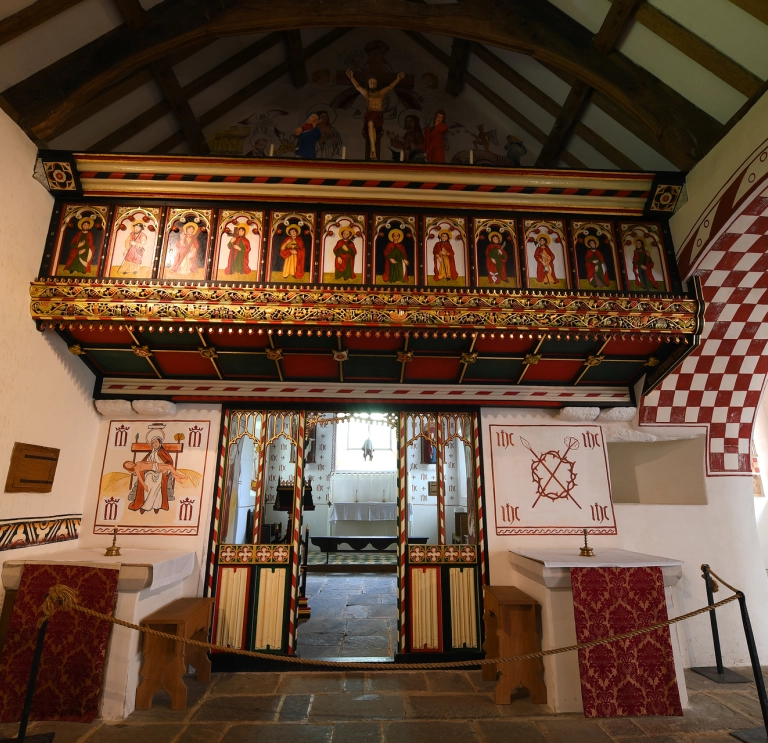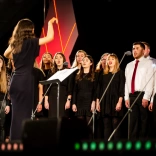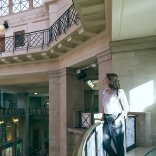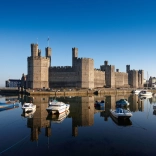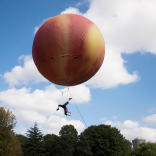Toffee-Making, Torch Processions and Plygain Singing on Christmas Eve and Christmas Morning
At 3am on Christmas morning in the 18th and 19th centuries, Welsh churchgoers would leave their houses by torchlight or candlenight to go to Plygain, a service of carols sung a capella by solos, groups and choirs. The word plygain is thought to have come from plygu, meaning to bend, as if in prayer, or from a link with the Latin word pullicantio, meaning to worship as the cock crows at dawn.
Plygain churchgoers had often stayed up all Christmas Eve, or as it was known in some areas, Noson Gyflaith (Toffee Night). Slabs of toffee would be made around the fire as games were played, and tall stories told. Noson Gyflaith was also the night for decorating houses with holly and mistletoe, before the pre-dawn procession to church began.
These processions are recorded in history books from Laugharne to Dolgellau to Llanfair Dyffryn Clwyd, with the illuminations being a vital part of the celebrations (as they are in so many festivals of light around the world). The church vicar was often led by these torches too, and cowhorns sounded loudly, before the service began.
Some have suggested that Plygain’s popularity back then was because of the rise Welsh language carol singing, after the mass distribution of the Welsh language bible. Some churches have revived the tradition today, with services held in St Davids Cathedral and across North Wales. However, many are held before Christmas these days, and thankfully not in the middle of the night.
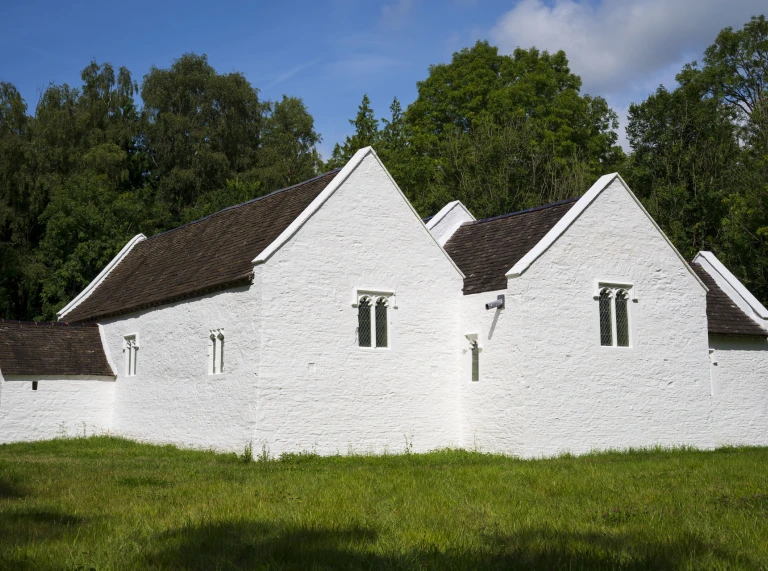
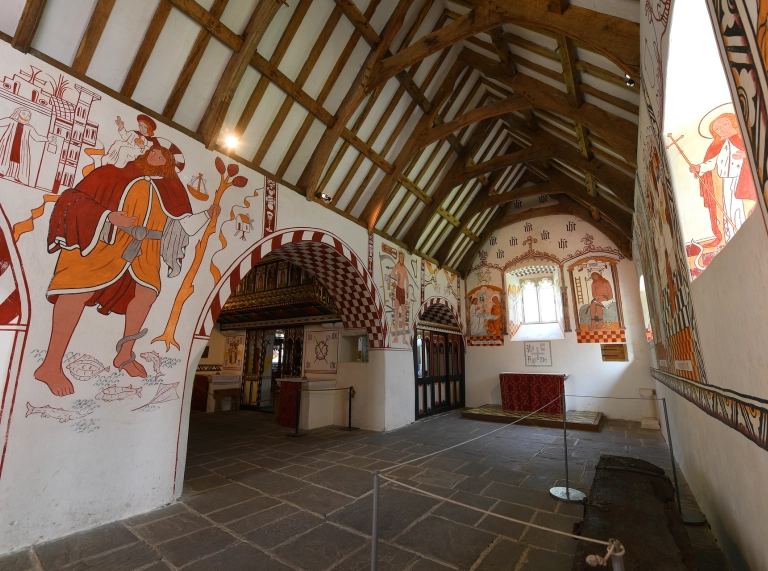
The Welsh Winter Swim
Most people spend Christmas Day and Boxing Day in repose or recovery, but hundreds of Welsh water babies also take to the waves. Porthcawl has hosted a Christmas morning swim now for over 50 years, while Boxing Day is the day for chattering teeth and icy limbs in Tenby’s North Beach and Cefn Sidan in Pembrey. Abersoch, Whitesands, Morfa Nefyn and Saundersfoot also host swims but on New Years’ Day; most events around the country are raising money for charity. Standing on the shingle or sand to cheer people along as the squeal in wintry waves is also encouraged.
Find out more about Festive Swims on the Visit Wales website.
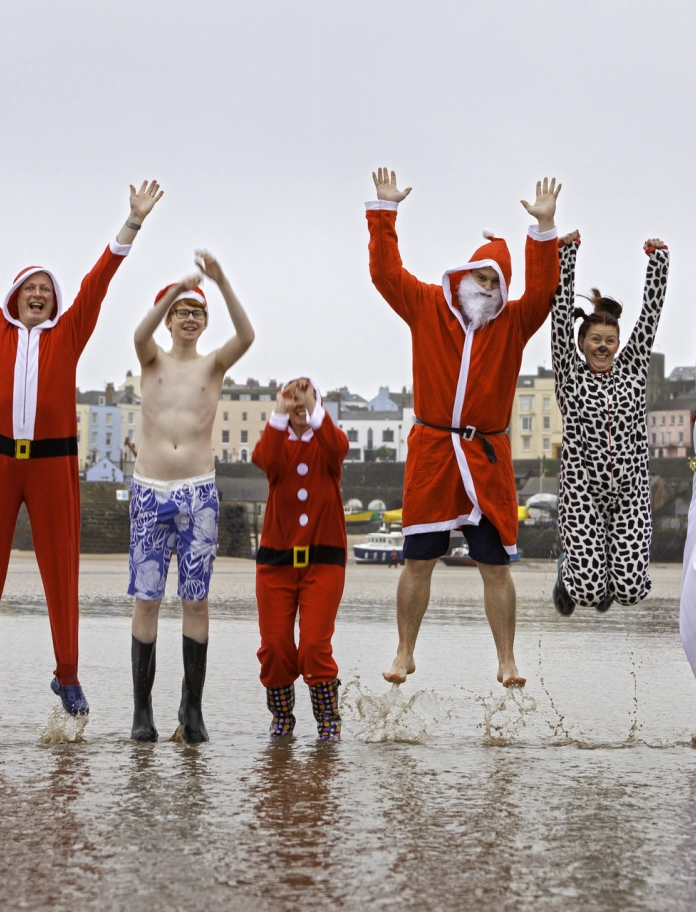
Wassailing with the Mari Lwyd
An old South Walian tradition enjoying a revival in recent years, the spectacle of a Mari Lwyd parading around town is one you’re unlikely to forget. The Mari itself is a horse’s skull carried on a long pole by a person hidden under a cloak, led around by a gaggle of wassailers. Traditionally, this group would knock doors in their village between Christmas Day and Twelfth Night, and engage in a rhyming ritual called pwnco, in exchange for food and beer. Today, the Maris are also often seen, eccentrically decorated, in local festivals through December and January.
The Nos Galan Road Races
Nearly 2,000 runners descend on the Welsh valleys town of Mountain Ash on the afternoon of New Year's Eve. They’re there to commemorate Guto Nyth Brân, a runner who lived in the village of Llwyncelyn in the early 1700s. So fast was he, legend says, that he could run to Pontypridd and back – a distance of seven miles – before his mother’s kettle had boiled.
Founded in 1958 by local runner Bernard Baldwin, the Nos Galan Road Races begin with a church service at Llanwynno, where a wreath is laid on Brân’s grave, and a torch lit (Welsh Olympic hurdler Colin Jackson and Welsh rugby captain Sam Warburton have been at this ceremony in recent years). The torch is then taken to the town, with competitions being held for both adults and children. The races used to end at midnight to welcome in the New Year; they now end at a more family-friendly 9.30.
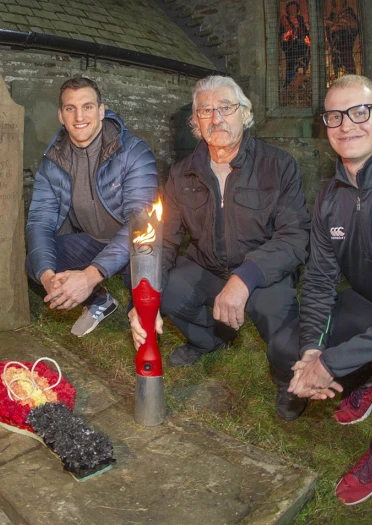
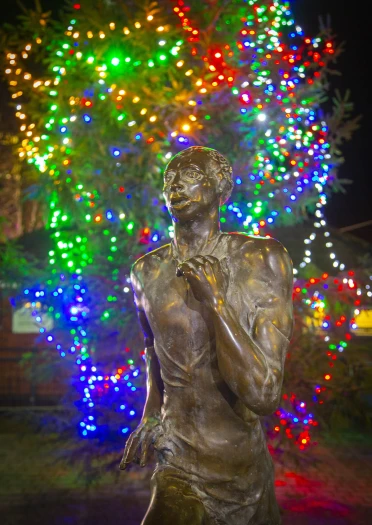
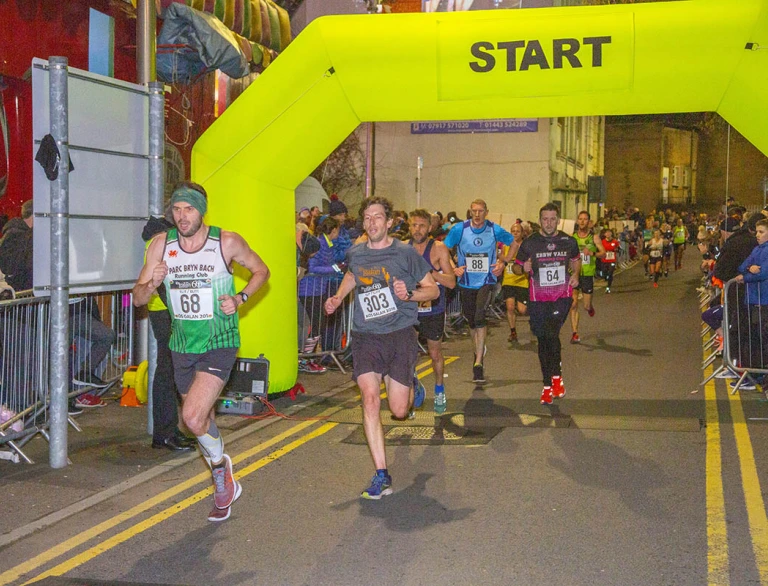
Calennig celebrations
In the South Wales Valleys and Monmouthshire, Calennig was a New Year's Day celebration enjoyed by children. They would sing or recite rhymes door to door in exchange for bread and cheese, sweets or money, and carry an an apple or orange on three sticks, studded with nuts, oats, herbs and evergreen leaves. These peculiar-looking items were seen as emblems of good luck; they were also often put in windows of houses, or given as good luck presents, as a consequence.
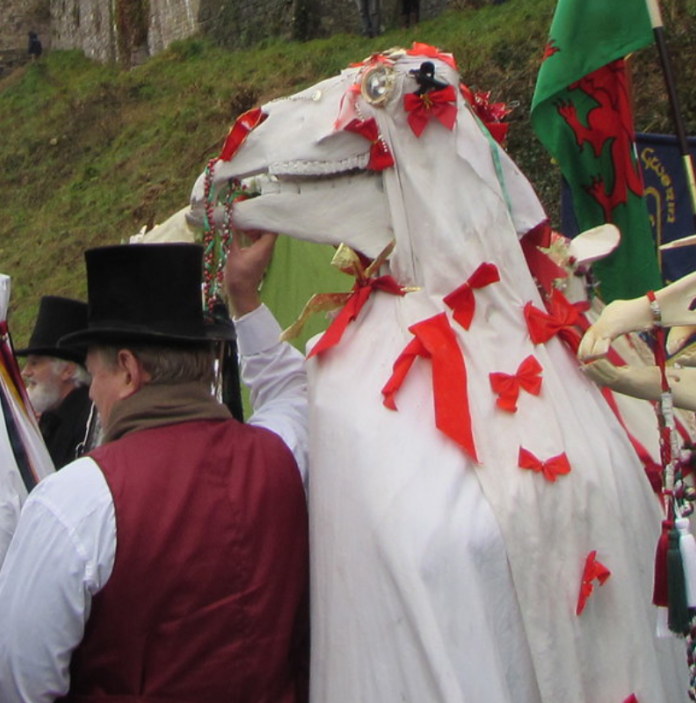
The Hen Galan celebrations
Inhabitants of the Gwaun Valley in North Pembrokeshire still celebrate the New Year of the Julian Calendar, a calendar which was abolished in Britain in 1752 (hence Hen Galan: the Old First Day). Celebrations used to involve farmers brewing their own beer, and locals visiting each other’s houses; they still involve a feast on a par with the traditional Christmas dinner, and a trip to local institution, The Dyffryn Arms, known locally as Bessie’s, to quench the thirst.
It's all enough to make you long for the Welsh winter. Let's drink to that.
